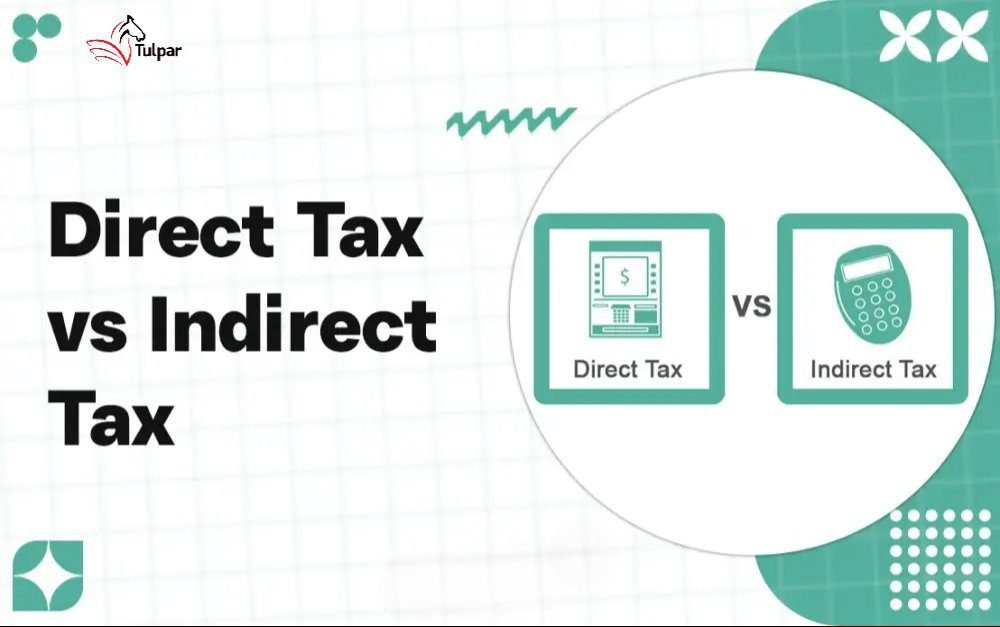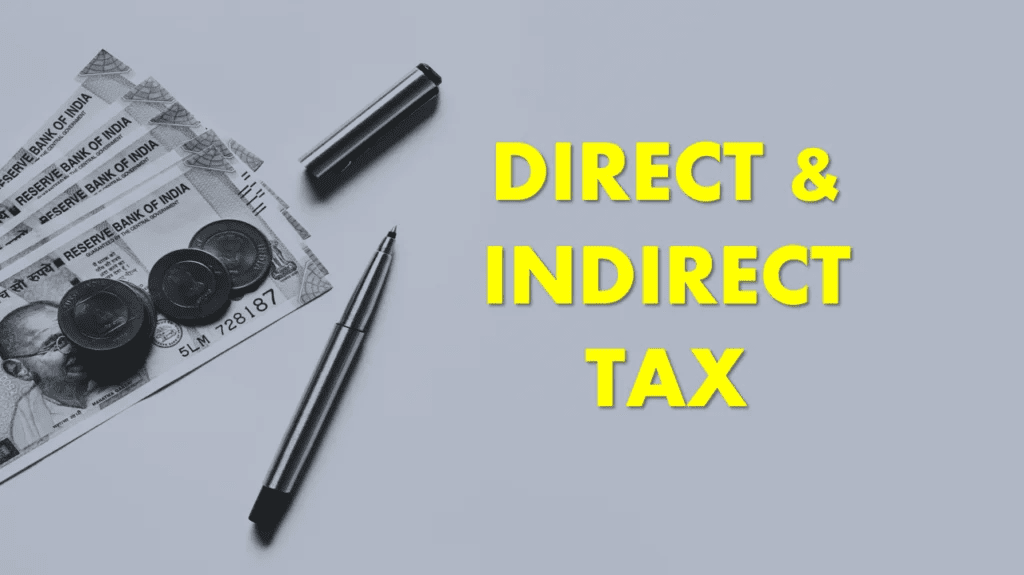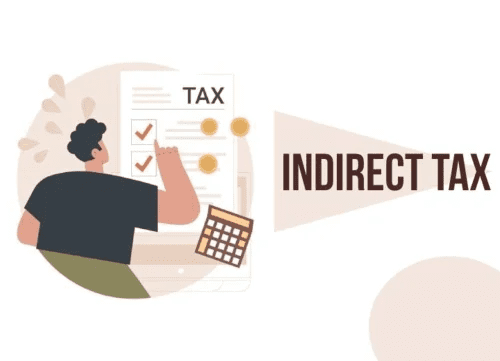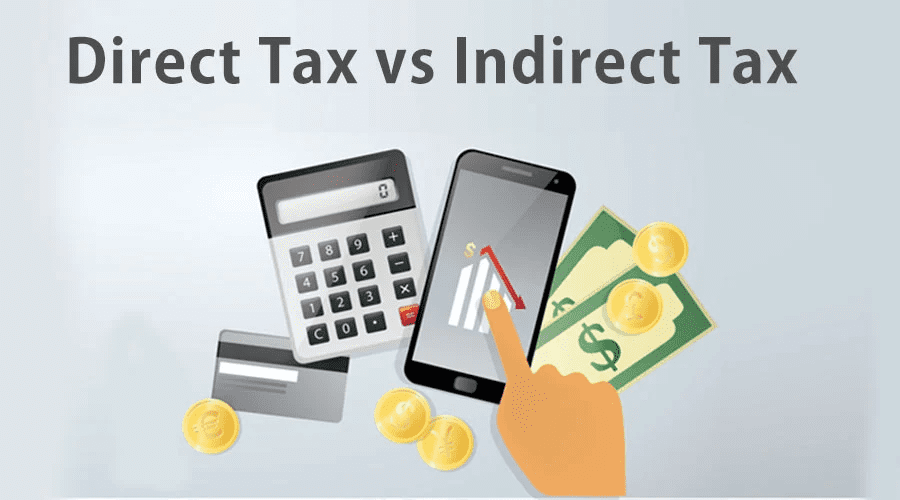
Difference Between Direct and Indirect Taxes in the UAE
Table of Contents
Related Articles


The Impact of CARF on UAE Crypto Traders | Ready to Report FTA

Feasibility Study Report Preparation in UAE

Let's Talk
Sign Up For Free Consultation
Direct and Indirect Taxes in the UAE
In the UAE, understanding the difference between direct and indirect taxes is essential for businesses and individuals alike. Direct taxes are levied directly on an individual or organization’s income or profits. For example, corporate tax, which is applicable to certain businesses in the UAE, falls under direct taxes. These taxes are paid directly to the government by the taxpayer. On the other hand, indirect taxes are imposed on goods and services, and are paid by the consumer. The most common example in the UAE is Value Added Tax (VAT), which is added to the price of most goods and services, and businesses collect it on behalf of the government. By understanding these distinctions, businesses can better manage their financial obligations and optimize their tax strategies.

Navigating these tax types can be complex, especially with ongoing changes in tax laws and regulations in the UAE. This is where partnering with Tulpar Global Taxation Services becomes crucial. With the rise of VAT and other indirect taxes, understanding how they apply to your business transactions is key. Tulpar Global Taxation Services helps businesses stay compliant by offering expert advice and tailored solutions for managing both direct and indirect taxes. Whether you’re trying to maximize tax efficiency or ensure proper reporting and payment, our professionals ensure that your business adheres to the latest tax laws, mitigating any risk of penalties or fines.
Moreover, businesses need to be proactive in addressing both types of taxes to avoid potential financial setbacks. With expert guidance from Tulpar Global Taxation Services, businesses in the UAE can stay ahead of the curve, efficiently handling both direct and indirect tax obligations. Our expert team will help you navigate the complexities of the tax system, offering practical advice on how to optimize your tax strategy and ensure compliance. By partnering with us, you can reduce your risk exposure, streamline your tax processes, and ultimately focus on growing your business with confidence.
What Are Direct Taxes? Key Insights for UAE Businesses
The UAE is renowned for its favorable tax environment, which historically provided businesses with the advantage of minimal direct taxes. However, recent changes in the tax regime, particularly the introduction of corporate income tax (CIT) and other direct taxes, mean that UAE businesses must stay vigilant to remain compliant. Understanding direct taxes is crucial for any business operating in the UAE, especially as the country adapts its fiscal policies to align with global standards.
What Are Direct Taxes and How Do They Affect Your Business?
Direct taxes are those taxes levied directly on income, profit, or wealth. Unlike indirect taxes, which are passed on to the consumer, direct taxes are paid directly to the government by the individual or business entity. In the UAE, businesses are now subject to corporate income tax, which is applied to the profits earned by companies, as well as certain other types of direct taxes.
For businesses in the UAE, the introduction of Corporate Income Tax (CIT) in 2023, at a rate of 9% for companies with profits exceeding AED 375,000, marked a significant shift in the tax landscape. While the UAE has been a tax haven for many years, this recent move underscores the need for businesses to be proactive in understanding and managing their tax liabilities.
Why Direct Taxes Matter for Your Business
Direct taxes, particularly CIT, directly impact your company’s financial performance. These taxes reduce the profit margins of your business, and any mismanagement or lack of awareness could lead to unnecessary financial losses. Additionally, failure to comply with direct tax obligations could result in penalties, interest charges, or even reputational damage.
Proper tax planning and compliance are key to minimizing the impact of these taxes and ensuring that your business thrives in a competitive global environment. It’s essential to have a strategic approach to managing these taxes, which is where expert advice becomes invaluable. At Tulpar Global Taxation Services, we specialize in helping businesses navigate the complexities of direct taxes in the UAE. Our team of experts offers tailored solutions to ensure your business remains compliant with CIT and other tax regulations. Whether you need help with tax filing, financial reporting, or strategic tax planning, Tulpar Global can help you manage your tax liabilities and minimize their impact on your business.
How Indirect Taxes Impact Your Business in the UAE
Indirect taxes in the UAE, primarily VAT (Value Added Tax) and excise duties, are integral to the country’s economic structure. Unlike direct taxes, which are paid directly by businesses, indirect taxes are transferred to consumers and are levied on goods and services. Understanding how these taxes impact your business operations is crucial for smooth financial planning and compliance. Indirect taxes, including VAT and excise duties, are taxes imposed on the sale of goods and services. VAT, for example, is a 5% tax on most goods and services in the UAE. When you sell a product or service, you collect the VAT from your customer and remit it to the government. This tax can have significant effects on your pricing strategy, cash flow, and overall financial management.
Excise duties, on the other hand, apply to products that are deemed harmful to health or the environment, such as tobacco, sugary drinks, and energy drinks. These duties not only increase the cost of these products but also affect their demand and consumption, which, in turn, impacts your business. Indirect taxes can affect your business in various ways. For instance, businesses that fail to collect the correct amount of VAT or mismanage excise duties can face penalties and compliance issues. Furthermore, as VAT is remitted periodically, businesses must maintain accurate records to ensure that they meet their tax obligations on time. Understanding how VAT affects your pricing, cash flow, and profit margins can help you implement better financial strategies. By being proactive in managing indirect taxes, you can optimize your operations and ensure smooth interactions with the authorities. At Tulpar Global Taxation Services, we provide businesses with expert guidance on VAT and excise tax compliance. Our team can help you understand the intricacies of VAT, from proper invoicing to accurate tax filings. We also assist with excise duties, ensuring that your business complies with all applicable laws while minimizing costs. With our assistance, you can ensure your business remains tax-efficient and fully compliant with UAE tax regulations.
Key Differences Between Direct and Indirect Taxes

Understanding the distinction between direct and indirect taxes is essential for businesses operating in the UAE. Both tax types play a crucial role in the country’s fiscal system, and knowing how they work is key to managing your tax obligations effectively. While both tax categories are part of the broader economic framework, they have distinct characteristics that impact businesses in different ways.
Direct Taxes: Paid by the Individual or Business Directly
Direct taxes are taxes that are directly imposed on an individual or business entity. Unlike indirect taxes, which are passed on to consumers, direct taxes are paid by the business or person directly to the government. They are levied on income, profits, or wealth, and they cannot be shifted to someone else. In the UAE, businesses have traditionally enjoyed a relatively tax-free environment, but with the introduction of Corporate Income Tax (CIT) in 2023, businesses now face direct tax obligations.
Direct taxes are particularly significant for businesses in the UAE as the new corporate tax law mandates that companies with profits exceeding AED 375,000 will be subject to a 9% tax rate. This tax is directly calculated on the profits of a business, reducing the net income of the company. For individuals, direct taxes may also apply to their personal income, though currently, the UAE does not impose personal income tax. However, businesses may need to account for taxes related to employee compensation and other personal income-related considerations should tax laws change in the future.
The introduction of Corporate Income Tax in the UAE is a game changer. Businesses must now calculate, manage, and remit taxes directly to the government, impacting their profitability and financial strategies. For businesses to thrive, it’s essential to stay compliant with these taxes and optimize their tax planning. Failing to comply with direct tax obligations can result in penalties, legal issues, or damage to your business’s reputation. To navigate the complexities of direct taxes effectively, businesses in the UAE should seek expert guidance. Tulpar Global Taxation Services specializes in providing tailored tax solutions, ensuring your business remains compliant with corporate income tax laws. Their team of experts offers assistance with tax calculations, filing, and strategic planning, helping businesses optimize their tax positions and avoid any pitfalls. Partner with Tulpar Global Taxation Services to stay ahead of tax regulations and ensure your business is in top financial health.
Indirect Taxes: Passed on to Consumers in the UAE
Unlike direct taxes, indirect taxes are levied on goods and services, and the tax burden is passed on to the consumer. These taxes are collected by businesses at the point of sale and remitted to the government. The UAE has implemented Value Added Tax (VAT) and excise duties, both of which significantly impact businesses and consumers. Indirect taxes, particularly VAT, are a fundamental part of the UAE’s tax system. VAT is charged at a rate of 5% on most goods and services. As a business owner, you are responsible for collecting this tax from your customers and then remitting it to the government. While the tax is technically paid by the consumer, your business acts as an intermediary in the collection process.
Excise taxes, another form of indirect tax, are imposed on goods such as tobacco, sugary drinks, and energy drinks. These taxes are typically reflected in the price of these products, influencing both the cost structure of your business and the purchasing decisions of consumers. Indirect taxes can significantly affect your cash flow, pricing strategy, and overall financial management. As VAT is collected and remitted periodically, businesses need robust systems in place to track and report their VAT obligations. Additionally, excise duties can impact the demand for certain goods, which may directly influence your revenue. Understanding how indirect taxes work ensures that your business can pass on the correct amount of tax to consumers while remaining compliant with the law. This not only helps maintain a good relationship with customers but also ensures smooth operations with the tax authorities. Managing indirect taxes such as VAT and excise duties requires expertise to ensure compliance and minimize the risk of penalties. Tulpar Global Taxation Services can help you streamline your VAT processes, from proper invoicing to timely filing. Their team also provides expert advice on excise duties, helping you adjust your pricing strategy and manage costs effectively. By working with Tulpar Global Taxation Services, you can navigate the complexities of indirect taxes with confidence.
How Direct Taxes Affect Your Business Operations

As a business operating in the UAE, understanding the effects of direct taxes is essential for maintaining financial health, achieving profitability, and ensuring long-term business success. Although the UAE is known for its historically low tax environment, recent changes have introduced Corporate Income Tax (CIT), which businesses now need to incorporate into their financial planning. While the corporate tax rate of 9% may seem relatively low compared to global standards, it still represents a significant cost for many businesses, especially for those operating with tight profit margins.
Direct taxes, such as corporate tax, have a direct impact on your bottom line and overall cash flow. Therefore, businesses must factor in these tax obligations when developing pricing strategies, estimating profits, and forecasting growth. Understanding how to navigate the nuances of direct taxes is crucial for any business in the UAE that wants to maintain compliance while optimizing their financial performance. From adjusting operating costs to managing profitability and ensuring proper tax filing, direct taxes can influence a wide range of business operations. Here’s how direct taxes can impact your day-to-day business activities and long-term financial strategy:
Corporate Tax and Its Impact on UAE Companies
In 2023, the UAE introduced a Corporate Income Tax (CIT) for businesses earning profits above AED 375,000. This marked a significant shift in the tax environment, as many companies previously operated tax-free. The CIT is now a direct tax that businesses must account for, and it is calculated based on their taxable profits. Corporate tax affects several aspects of your business operations. First, it directly impacts profitability. With 9% of your profits going to the government, businesses need to factor this into their pricing, cost structure, and long-term financial planning. Additionally, businesses must ensure they maintain accurate financial records and file their taxes on time to avoid penalties.
Understanding how corporate tax works and planning your finances accordingly is crucial for businesses. Corporate tax compliance ensures your business avoids any penalties, fines, or reputational risks. Proper tax management can also help you identify potential savings opportunities, such as tax credits or deductions. Tulpar Global Taxation Services can assist you in navigating the complexities of corporate tax. Their team of tax experts helps businesses optimize their tax strategies, ensuring compliance with CIT while minimizing tax liabilities. Partner with Tulpar Global Taxation Services to get expert advice and support for corporate tax planning and filing.
Personal Income Tax in the UAE: A Crucial Understanding
Currently, the UAE does not levy personal income tax, making it one of the few countries in the world without such a tax. However, businesses need to remain aware of potential changes to tax laws in the future. Additionally, some indirect taxes, such as VAT, may indirectly affect employees and their disposable income. While personal income tax is not currently applicable, business owners and employees should stay informed about any potential tax reforms. Understanding the implications of personal income tax could affect your salary structuring, benefits packages, and overall financial planning.
Even if personal income tax is not currently a concern, businesses should keep an eye on potential tax law changes. Being proactive in understanding how personal income tax might affect employee compensation can help businesses adjust quickly should the need arise. At Tulpar Global Taxation Services, we provide businesses with up-to-date information on potential tax reforms, including personal income tax. Our experts can help you plan for the future, ensuring your business remains compliant with any future tax changes. By partnering with Tulpar Global Taxation Services, you ensure that your business stays ahead of potential challenges and maintains compliance with all applicable tax laws. Both direct and indirect taxes have a profound impact on UAE businesses. Understanding the key differences and how they affect your operations is essential for long-term success. With the expertise of Tulpar Global Taxation Services, you can navigate these complexities efficiently and ensure that your business remains tax-compliant and financially optimized. Don’t let tax challenges stand in the way of your growth—work with Tulpar Global Taxation Services for expert advice and strategic support.
The Role of Indirect Taxes in UAE’s Economy

In the UAE, indirect taxes such as VAT (Value Added Tax) and customs duties have become vital components of the national economic framework. These taxes are imposed on goods and services and play a crucial role in funding the government’s budget. For businesses, these taxes are important considerations when pricing products and managing cash flow. Despite the country’s favorable tax environment, businesses need to understand the role of indirect taxes to ensure they stay compliant and efficient.
VAT: Understanding Its Effects on Your Business
Introduced in 2018, the Value Added Tax (VAT) is a 5% tax levied on most goods and services in the UAE. As a business owner, you act as an intermediary for the government, collecting VAT from your customers at the point of sale and remitting it to the authorities. While VAT is not a tax on your profits, it can affect your pricing strategies, cash flow, and overall financial management. For businesses in the UAE, VAT is a significant operational concern. You must ensure that your pricing reflects VAT charges and maintain accurate records for VAT invoicing and filing. Not only does this help you comply with tax regulations, but it also minimizes the risk of penalties. Moreover, businesses that make VAT-related mistakes may face costly fines or experience disruptions in cash flow, affecting their profitability.
Tulpar Global Taxation Services is your partner in managing VAT efficiently. Our experts help businesses ensure proper VAT collection, documentation, and timely filing. With Tulpar Global Taxation Services, you can ensure that VAT doesn’t negatively impact your bottom line and that you’re fully compliant with the UAE’s tax regulations.
Customs Duties: How They Influence Trade in the UAE
In addition to VAT, the UAE imposes customs duties on imported goods. These duties are typically levied at a rate of 5%, although specific goods (such as tobacco and alcohol) can be taxed at higher rates. Customs duties are a critical factor in the UAE’s economy, particularly as the country serves as a global trading hub. Customs duties can significantly affect your business’s supply chain and pricing strategies. The cost of importing goods can increase due to these duties, which directly impacts the overall cost of doing business. For industries that rely heavily on imported goods, understanding the effect of customs duties on your profitability is essential for keeping your prices competitive.
Tulpar Global Taxation Services provides expert guidance on customs duties, ensuring that your business is aware of all applicable duties and tariffs. Our team can help you manage costs, adjust your pricing strategies, and stay compliant with UAE regulations, enabling your business to trade efficiently and cost-effectively.
Direct vs Indirect Taxes: Which One Should You Focus On?

Both direct and indirect taxes are crucial components of the UAE’s tax system, each impacting businesses in different ways. While direct taxes are levied directly on a business’s income or profits, such as the newly introduced Corporate Income Tax (CIT), indirect taxes like VAT (Value Added Tax) and customs duties are applied to the sale of goods and services. Direct taxes primarily affect a business’s bottom line, reducing profitability by taxing the income generated. In contrast, indirect taxes are typically passed on to consumers through higher prices, although businesses are responsible for collecting and remitting these taxes to the government.
For businesses operating in the UAE, understanding the implications of both tax types is vital. Direct taxes, like corporate tax, require careful financial planning and tax filings, while indirect taxes, such as VAT and customs duties, demand efficient management of pricing and cash flow. Each type of tax has distinct regulations and deadlines, and failure to comply with them can result in penalties, financial strain, and legal challenges. Optimizing tax management means ensuring your business is compliant with both tax types and strategically planning to minimize tax liabilities. Efficient management of VAT, customs duties, and corporate tax can significantly improve your business’s financial performance, profitability, and operational efficiency. For UAE-based businesses, it is not just about meeting obligations but making tax compliance a part of a broader strategy to achieve long-term success in the marketplace.
Why UAE Businesses Should Pay Attention to Both Tax Types
While direct taxes (like corporate income tax) directly impact your business’s profits, indirect taxes can also influence your cash flow, pricing, and supply chain. A balanced approach to managing both tax types is crucial. For example, VAT affects your invoicing and reporting, while direct taxes such as corporate income tax impact the profitability and tax burden of your business.
For businesses in the UAE, focusing on both tax types allows for better financial planning. By managing direct taxes (like CIT) and indirect taxes (like VAT and customs duties) simultaneously, you can ensure that your business remains tax-efficient. This will help minimize the overall tax burden while optimizing cash flow and profitability. Tulpar Global Taxation Services offers expertise in managing both direct and indirect taxes. We provide customized tax planning strategies to help your business optimize both types of taxes. With our help, you can maximize tax efficiency, ensure compliance, and avoid costly mistakes related to VAT, corporate tax, and customs duties.
Maximizing Tax Efficiency with Direct and Indirect Taxes
Maximizing tax efficiency is about reducing your overall tax burden through strategic planning. For direct taxes, this might involve leveraging tax deductions, credits, or exemptions. For indirect taxes, it could mean optimizing your VAT collection process or managing customs duties effectively. Combining these strategies ensures that your business is as tax-efficient as possible. When your business understands and manages both direct and indirect taxes efficiently, you can reinvest the savings into business growth and expansion. Not only does this ensure that you remain compliant, but it also helps maintain your competitive edge in the market. Proper tax efficiency translates into improved profitability, better cash flow management, and fewer surprises when it comes to filing.
At Tulpar Global Taxation Services, our experts are skilled at maximizing tax efficiency for businesses across the UAE. We help businesses reduce tax burdens by offering comprehensive solutions that cover both direct and indirect taxes. Partner with Tulpar Global Taxation Services to ensure your business runs smoothly, maximizes savings, and stays compliant with all tax obligations.
Why You Need Expert Advice on UAE Taxes

Navigating the tax landscape in the UAE can be complicated, especially with the introduction of corporate income tax and the ongoing need to manage indirect taxes like VAT and customs duties. For businesses, staying compliant with the latest tax regulations is crucial, and the risk of errors or mismanagement can result in costly penalties or legal issues.
How Tulpar Global Taxation Services Helps You Navigate Taxes
The tax landscape in the UAE is evolving, and keeping up with these changes can be a challenge. Tulpar Global Taxation Services offers in-depth expertise in UAE tax regulations, helping businesses manage both direct and indirect taxes. We keep your business updated on the latest tax laws and offer strategic advice on how to comply with corporate income tax, VAT, and customs duties.
By partnering with Tulpar Global Taxation Services, you can minimize the risk of non-compliance and reduce the possibility of facing penalties or financial setbacks. Our expert team ensures that your business is always up to date with tax laws and is filing correctly, reducing the risk of audits or penalties. With our help, you can focus on your business’s growth while we handle your tax concerns. At Tulpar Global Taxation Services, our team of experts provides comprehensive tax services tailored to your business needs. From tax filing to strategy development, we ensure that your tax obligations are met efficiently and effectively. Reduce risks, improve compliance, and maximize your tax efficiency by partnering with Tulpar Global Taxation Services today.
In Conclusion:
Understanding and managing both direct and indirect taxes in the UAE is essential for any business looking to succeed and remain compliant in an ever-evolving fiscal environment. Whether it’s VAT, corporate income tax, or customs duties, these taxes significantly impact your operations. To ensure tax efficiency, profitability, and compliance, businesses must invest in expert advice. Tulpar Global Taxation Services is your trusted partner for navigating these complexities. Let us help you optimize your tax strategy and stay compliant, so you can focus on growing your business.
